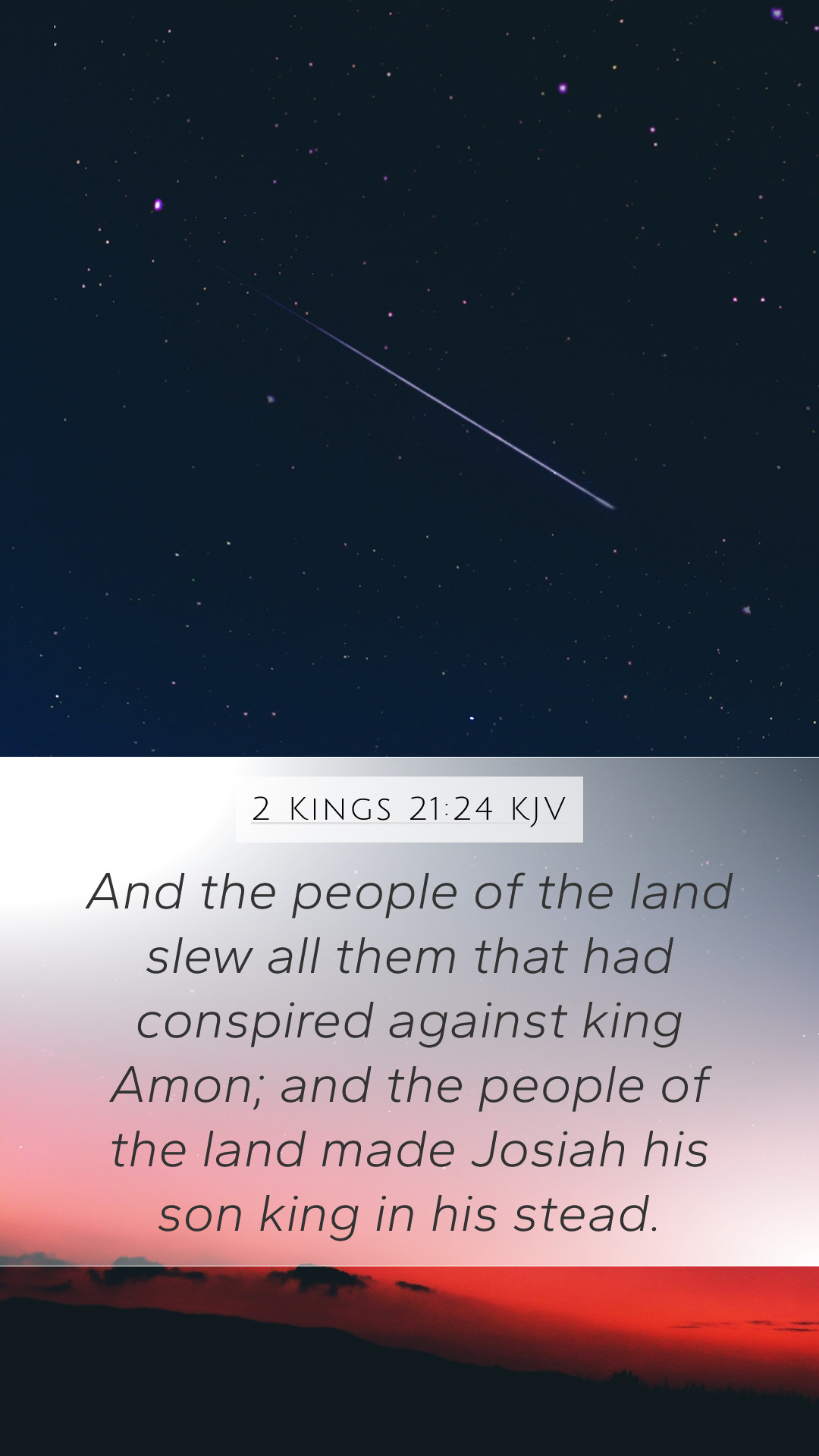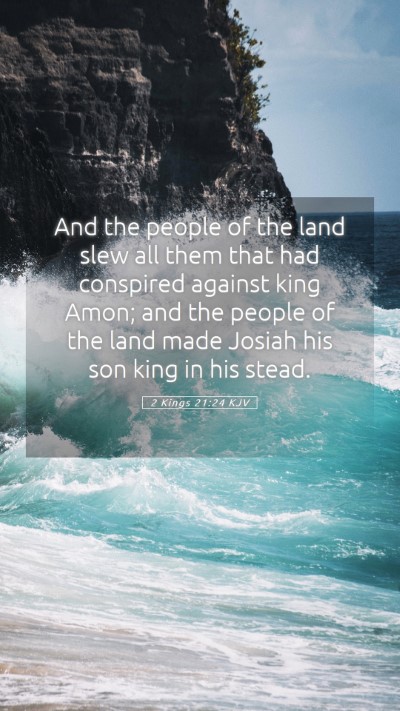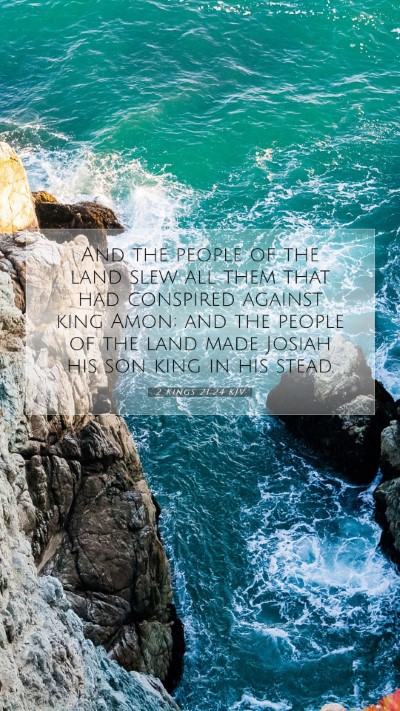Bible Verse Commentary on 2 Kings 21:24
Verse: "And his servants killed him in the garden of Uzza, and his people made Ahaziah his son king in his stead." (2 Kings 21:24)
Overview: This verse captures a significant moment in the history of the kings of Judah, culminating in the violent end of King Manasseh and the subsequent rise of his son, Ahaziah. The actions of the servants of Manasseh reflected the tumultuous political climate and the consequences of Manasseh's reign of idolatry and sin.
Insights from Public Domain Commentaries
Matthew Henry’s Commentary
According to Matthew Henry, this verse signifies the divine judgment upon Manasseh after a reign characterized by widespread idolatry and leading the people of Judah into sin. His assassination reflects not only the personal animosity that could exist against a wicked ruler but also the broader calamity that results from turning away from God. Henry emphasizes the contrast between Manasseh's initial reign, which caused great harm, and the consequence of that reign, showing God’s justice in removing a ruler who led a nation astray.
Albert Barnes’ Notes on the Bible
Albert Barnes interprets this event as an example of the instability that accompanies ungodly leadership. He points out that Manasseh's rule was marked by brutality and the oppression of those who sought to follow God's laws. The fact that his own servants turned against him illustrates the inevitable downfall that follows a life lived in rebellion against divine principles. Barnes suggests that this assassination serves as a catalyst for restoring Judah to a better path under the leadership of Ahaziah, albeit through another period of strife.
Adam Clarke’s Commentary
In Adam Clarke’s analysis, he reflects on the political implications of Manasseh's assassination. Clarke notes that the murder of a king by his own servants signals a breakdown of authority and a rejection of tyranny. He outlines the historical context of a turbulent monarchy in Judah, whereby those who ruled with injustice eventually face dire consequences. Clarke also posits that Ahaziah's ascension is indicative of the people's desire for a leader who would bring them back to God’s favor, marking a significant transition in the nation's leadership.
Theme of Divine Justice and Leadership
This verse, therefore, serves as a cautionary tale about the nature of leadership and the importance of ruling with integrity. Biblical exegesis often highlights how leadership, especially among God’s people, carries a heavy burden of responsibility. Bad leadership can corrupt entire nations, while righteous leadership can lead to restoration.
Application to Daily Life
Understanding Scripture such as this can lead to deeper insights about the role of authority in modern times. Just as Manasseh faced consequences for his actions, contemporary leaders are also held accountable for their decisions and the impact they have on the community. This passage serves to remind us of the importance of seeking godly leaders who commit to righteousness and justice.
Cross References
- 2 Kings 21:1-16 - Overview of Manasseh's reign and his sinful practices.
- 2 Chronicles 33:1-9 - A parallel account of Manasseh's actions and eventual repentance.
- Isaiah 1:23 - References the consequences of corrupt leadership.
- Jeremiah 15:4 - Discusses the judgment upon Judah due to the actions of its leaders.
- 1 Peter 2:13-14 - Encouragement to submit to godly authority and the consequences of rebellion.
Conclusion
In summary, 2 Kings 21:24 acts as a profound example of biblical narrative imbued with deep meanings, reflecting on the themes of justice, governance, and moral responsibility. The analysis drawn from various commentaries sheds light on the importance of understanding Scripture in a holistic manner, encouraging further Bible study insights. This passage calls readers to consider the repercussions of leadership choices and the divine oversight that governs the rise and fall of kings.


